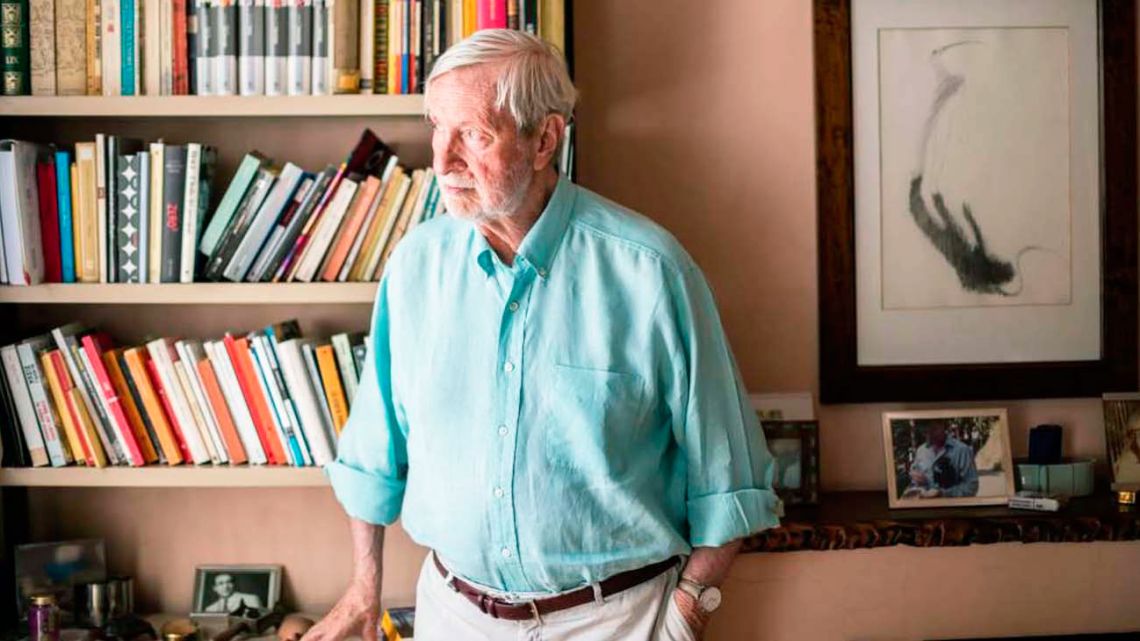Last Tuesday Gianni Vattimo died in Turin, the Italian city where he was born 87 years ago. Philosopher of postmodernity, his theory on weak thought is the most common definition for someone who, without a doubt, was part of the media discussion on contemporary thought: between the post-war European youth rebellion and the disappointment with the dogmatic left, between political violence and the growth of philosophical values as speculative quotes.
His academic career developed within the University of Turin, where, as he himself acknowledged, he was never discriminated against for being homosexual. There he obtained a degree in Philosophy in 1959 and completed his specialization in Heidelberg, Germany, studying with Karl Löwith and Hans Georg Gadamer, a disciple of Martin Heidegger, whose thought he introduced to Italy, while he revalued the thought of Nietzsche. In 1964 he was appointed associate professor and in 1969 he obtained the chair of Aesthetics at the University of Turin. During the 70s he was dean of the Faculty of Letters and Philosophy of the same. Between 1982 and 2008 he continued teaching Theoretical Philosophy classes at the same institution, regardless of the category of emeritus professor: in teaching he found vital nourishment.
Gianni Vattimo was not only a philosopher, but a man committed to the democratic system. He intervened in political groups such as the Radical Party, the Alliance for Turin, the Left Democrats and the Italian Communists. He was a candidate on the lists of Fuori!, one of the first associations of the Italian homosexual liberation movement, founded in 1971 in Turin by Angelo Pezzana. In the 1990s he was elected to the European Parliament, serving in two terms, first with the left-wing Democrats and then with Italia dei Valori, led by Antonio Di Pietro, in 2009. In 2005, he even ran for mayor of San Giovanni in Fiore, Calabria, to combat what, in his opinion, was the “intellectual degeneration” that afflicted that community. As several Italian journalistic articles point out, in these interventions his political positions were radicalized as outbursts against Israel or in favor of the Venezuelan populism of Hugo Chávez, something that generated controversy and reproaches.
The communist, Catholic and homosexual intellectual had a pioneering role in promoting the rights of LGBT+ people, defining himself as “homosexual and Christian”, writing a column about it for years in the Turin newspaper La Stampa. This “special vocation”, as he stated in an interview given on the occasion of Salerno Pride in 2005, contributed to the development of weak thinking: “I fight for the rights of minorities – he declared – but not like Pasolini, who was much more extreme.” ; He felt like a Jesus crucified by his enemies. I don’t live it like that. The injustice for me, among other things, consists in never having been able to court my companions. In this sense, Christianity pushed me to fight against injustice.”
A frequent visitor to Argentina, in 2014 he was invited by the Fedun (Federation of University Teachers) to a series of conferences at the UBA, presenting three books published by the union: Dios es communist, Waiting for the barbarians and From reality to the truth. On that occasion he declared in a report: “The impression I have today of Argentina, especially Argentine culture, did not vary so much from the first impression. If you were to take my statements on the subject as soon as I arrived for the first time, invited by Jorge Glusberg, you would see that they have not changed. Buenos Aires continues to be a European city located in Latin America. It’s something you stop feeling just by running a little, going to Rio de Janeiro, for example. There is something that unites the great cities of Latin America, and that is that they are clearly Latin American. Not Buenos Aires. That’s probably why I like it so much. Culturally it continues to have an unmatched, nutritious, overwhelming power. I don’t know another city like this. Maybe New York can be equaled, but I don’t think many other cities are like it in that regard.”
And as a Catholic, at that time, he referred to the appointment of Jorge Bergoglio as pope of the Catholic Church, which brings the quote into a context of current political turmoil in the country: “Francis saved the Church from the suicide to which the Their predecessors were pushing based on the literal reading of the Holy Scriptures and dogmas, which in the end historically has only served to distance the community from the Church. Francis is surrounded by problems due to his environment that we cannot even see, but it is these problems that continue to hold back what could be called a true ecclesiastical revolution. One of the points that the Church has always insisted on is the question of chastity, which is why it is so important that Francis has a positive vision of homosexual love. At the same time, analyzed in historical terms, it is somewhat scandalous. But this change is very important for the Church because, I reiterate, it brings him closer to the community, from which he was distancing himself.
Author of more than thirty books, including The Weak Thought (1983), co-authored with PA Rovatti, and The End of Modernity. Nihilism and hermeneutics in postmodern culture (1985), in a report last April carried out by Giacomo Galeazzi for La Stampa, and perhaps the last, Vattimo defined a political and social situation that is not foreign to Argentina: “The right is “Our fault.”
